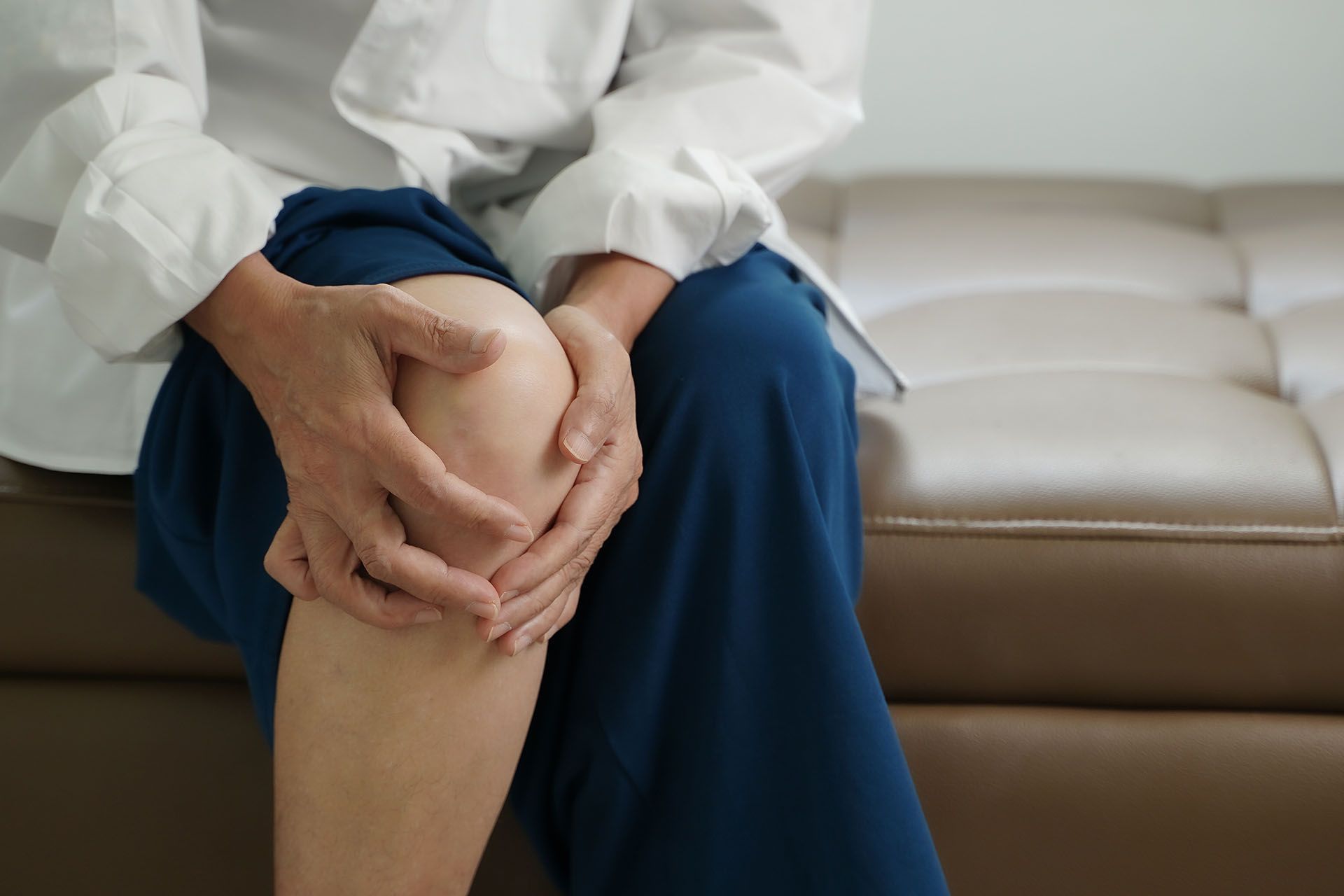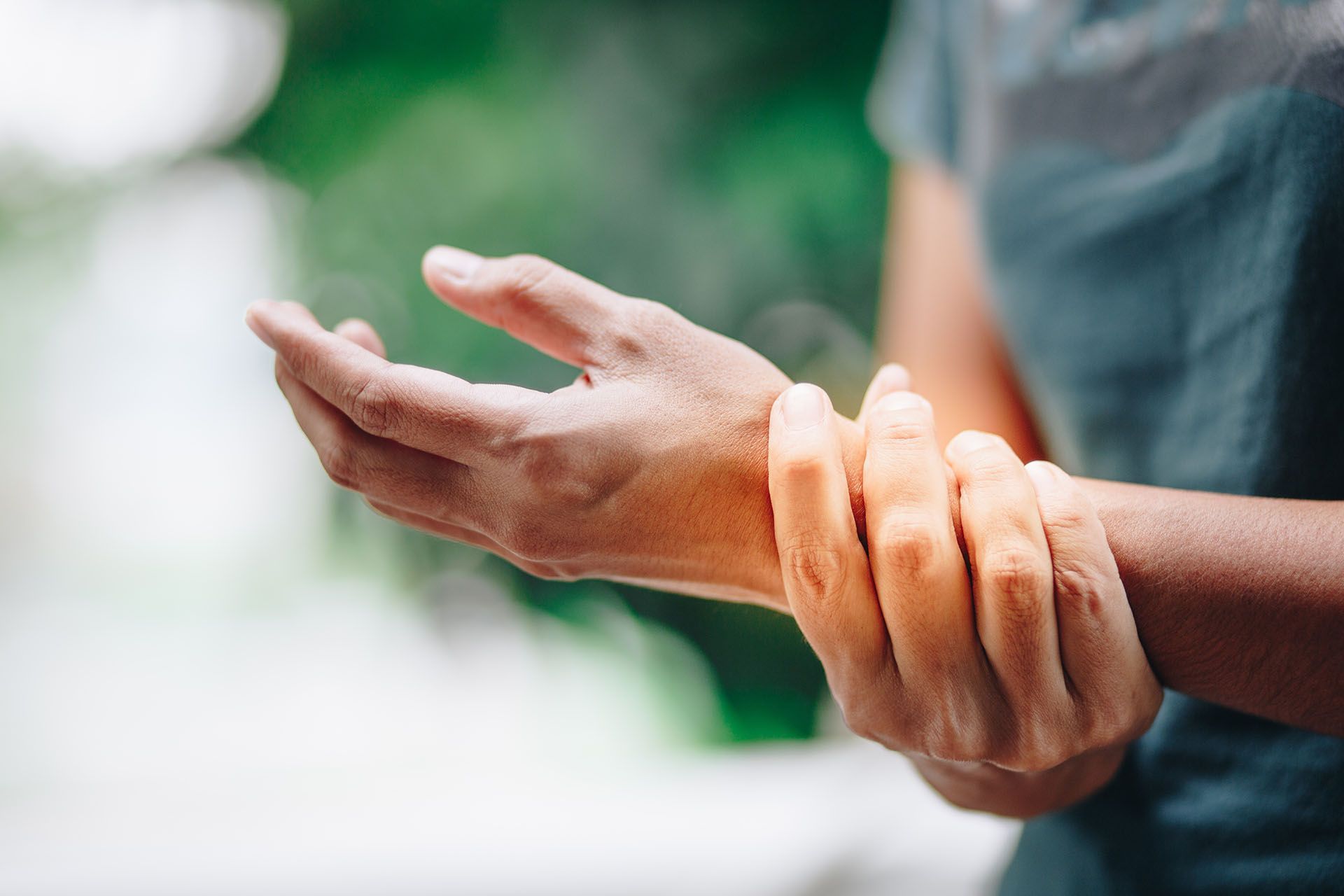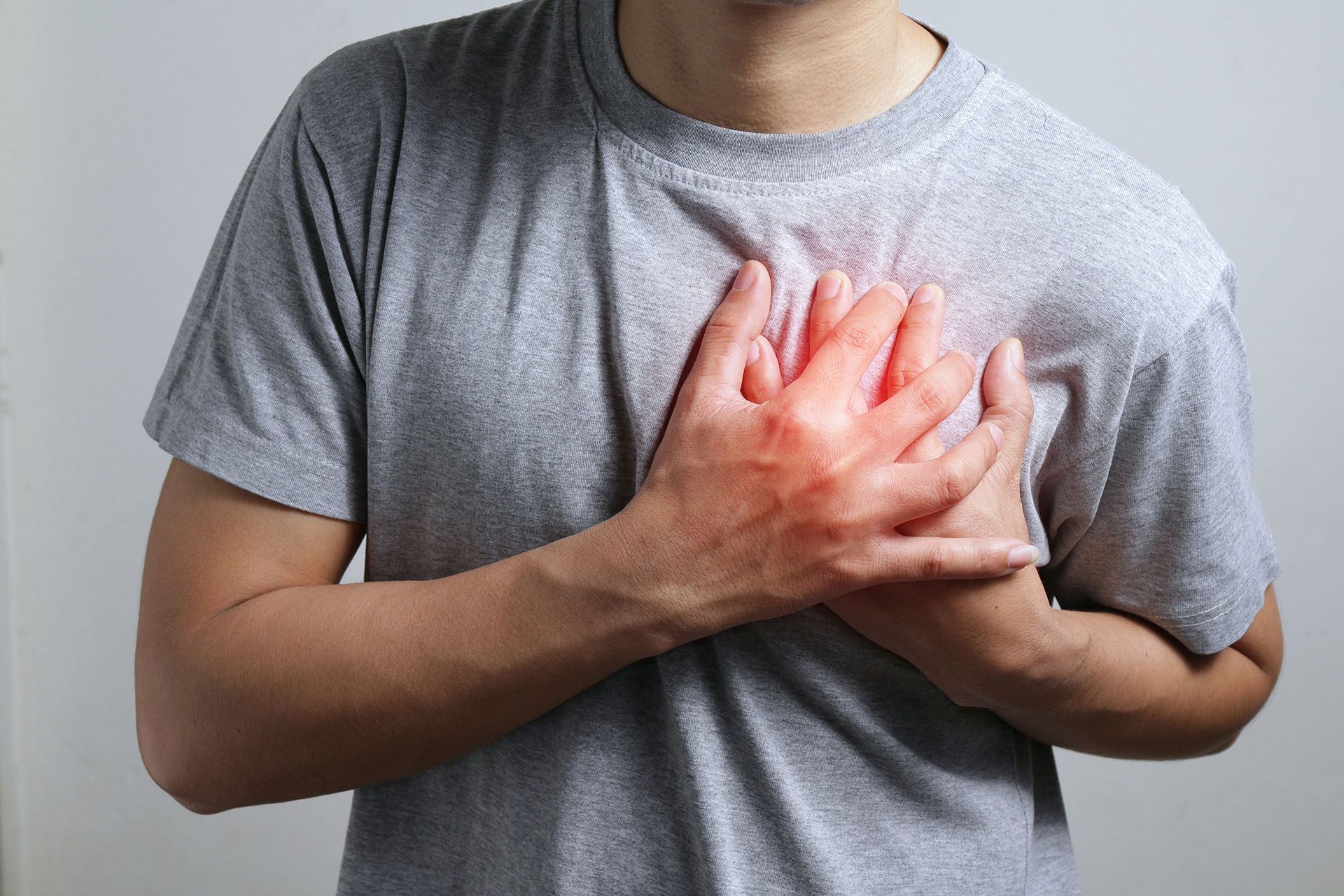INS LifeGuard
Managing Different Types Of Arthritis With Personal Alarms

Arthritis is a widespread condition that affects millions of people globally, especially seniors. As a degenerative condition, it can manifest in different forms. From osteoarthritis to inflammatory forms like rheumatoid arthritis and autoimmune conditions, the spectrum of arthritis is vast. That's why recognising their specific typed is crucial for exploring various approaches to manage it effectively.
In this blog, we'll discuss the different types of arthritis and how INS LifeGuard can help people dealing with arthritis manage the challenges associated with these conditions. If you or someone you love is dealing with it and you are seeking comprehensive insights and practical solutions, you've come to the right place. Read this blog to learn more.
What is arthritis?
Arthritis is a disease that is characterised by joint pain, swelling, stiffness, and decreased joint mobility. It is a complex condition that affects people of all ages, but often happens more in older adults. While the exact causes of arthritis vary depending on the type, common factors that may contribute to its development include genetics, autoimmune responses, family history, joint wear and tear, and metabolic abnormalities.
Some of the most common arthritis symptoms and signs include:
- Joint pain
- Joint inflammation
- Stiffness or tenderness
- Redness and warmth
- Skin discoloration
- Extreme fatigue
- Weakness
- Fever
- Weight loss
What are the different types of arthritis?
There are over 100 different types of arthritis, each with its own set of symptoms, causes, and treatment approaches. Here are some of the most common types.
Osteoarthritis
Osteoarthritis is the most common form of arthritis. It occurs when the protective cartilage that cushions the ends of bones gradually wears over time. This degenerative process is often associated with ageing and can affect various joints, such as those in the knees, hips, hands, and spine. While wear and tear on the joints is the common reason why it develops, factors like genetics, joint injuries, and obesity can also contribute to both its development and progression.
Symptoms of osteoarthritis can be controlled, but once the joints are damaged, they can't be fixed. By engaging in physical activities, keeping a healthy weight, and getting specific treatments, you could slow this down and make the pain and joints feel better.
Rheumatoid Arthritis
Rheumatoid arthritis is a chronic autoimmune disease that generally affects the joints. In this condition, the immune system, which is designed to protect the body, mistakenly attacks the synovium, which is the lining of the membranes surrounding the joints. Due to this, inflammation occurs, leading to pain, swelling, and stiffness in the affected joints.
Over time, the persistent inflammation can cause damage to the cartilage and bone within the joint, resulting in deformities and impaired joint function. In worst cases, rheumatoid arthritis can also extend beyond the joints, affecting other organs and systems in the body. Through early diagnosis and appropriate treatment, symptoms can be managed and long-term complications can possibly be prevented.
Gout
Gout is a type of arthritis characterised by sudden, severe attacks of pain, redness, and tenderness in the joints. It typically results when uric acid crystals accumulate in the joints due to high uric acid levels or when the body has difficulty eliminating it. Risk factors for gout development include a diet rich in purine-containing foods, excessive alcohol consumption, obesity, and certain medical conditions.
During a gout attack, the affected joint, usually the big toe, becomes swollen and extremely painful. The pain is often described as throbbing and can be so intense that even the weight of a bedsheet can cause discomfort. Through lifestyle changes and medications, uric acid levels can be lowered and long-term symptoms of gout can be managed. Nonsteroidal anti-inflammatory drugs (NSAIDs) and colchicine may also be prescribed to relieve pain and inflammation during acute gout attacks.
Ankylosing Spondylitis
Ankylosing Spondylitis (AS) is a chronic inflammatory arthritis that generally affects the spine. This condition typically begins in the lower back and sacroiliac joints, causing pain and stiffness that can progress over time. As this autoimmune disease advances, inflammation prompts the formation of new bones, which can lead in a forward stoop or hunched posture.
The exact cause of this disease is not clear. However, certain factors such as genetics, specifically the presence of a gene called HLA-B27, are strongly associated with its increased risk of development. And while there is no cure for Ankylosing Spondylitis, various treatments are available to manage symptoms and improve quality of life. These may include medications to reduce inflammation, physical therapy, exercise, and lifestyle changes.
Psoriatic Arthritis
Psoriatic arthritis is an autoimmune disease in which the immune system mistakenly attacks healthy tissues. This chronic inflammatory joint condition often occurs in individuals with psoriasis, but it can affect various parts of the body including the joints, tendons, and surrounding connective tissues. Common symptoms may develop before or after psoriasis can appear. These include joint pain, swelling, and stiffness, often in the fingers, toes, wrists, knees, or ankles.
Treatment for psoriatic arthritis involves medications such as nonsteroidal anti-inflammatory drugs (NSAIDs), disease-modifying antirheumatic drugs (DMARDs), and biologics. Aside from medication, lifestyle changes, physical therapy, and regular healthcare monitoring are helpful in managing Psoriatic arthritis.

Juvenile Idiopathic Arthritis
Juvenile idiopathic arthritis is a type of arthritis that affects children and adolescents. It falls under the category of autoimmune diseases, where the immune system mistakenly attacks the body's connective tissues. This results to symptoms such as joint pain, swelling, and stiffness.
There are several subtypes of juvenile idiopathic arthritis, which include:
- oligoarthritis (affecting fewer than five joints)
- polyarthritis (affecting more than four joints)
- systemic arthritis (involving joints as well as other organs)
- enthesitis-related arthritis (involving inflammation at the sites where tendons and ligaments attach to bones)
Treatment for juvenile idiopathic arthritis typically involves a multidisciplinary approach, including medications to control inflammation and manage symptoms, physical therapy, and in some cases, lifestyle changes.
Reactive Arthritis
Reactive arthritis is a type of arthritis that develops in response to an infection in another part of the body, most often in the intestines, gastrointestinal tract, genitals, and urinary tract. It is an inflammatory arthritis that commonly targets the knees, ankles, and feet. In addition, it may also manifest in the eyes (conjunctivitis), urinary tract symptoms, and skin rashes.
For it to be treated, the individual must address the underlying infection and manage symptoms with nonsteroidal anti-inflammatory drugs (NSAIDs), and in some cases, disease-modifying antirheumatic drugs (DMARDs).
Lupus Arthritis
Lupus arthritis is a type of arthritis that occurs in individuals with systemic lupus erythematosus, an autoimmune condition that mistakenly attacks healthy tissues. When a person has this condition, they become susceptible to arthritis symptoms which include joint pain, muscle stiffness, and swelling in multiple joints.
To manage lupus arthritis, a combination of medications, lifestyle adjustments, and ongoing medical supervision is needed. Depending on the type and severity of the arthritis, individuals with this condition may also benefit from range-of-motion exercises.
How INS LifeGuard Can Help People With Arthritis
People with arthritis need regular movement to prevent stiffness of their joints. Engaging in simple daily activities can help them maintain joint flexibility and reduce pain and discomfort. However, since most of these individuals are seniors, the risks of falls is high, making it more challenging for them to stay independent.
For seniors dealing with arthritis, INS LifeGuard's personal alarm device solutions offer an additional layer of security by providing assurance that help is just a button press away in the event of an emergency. They can wear these personal alarms whenever and wherever they want so they can live more independently while managing the potential risks associated with their condition.
Personal alarms are beneficial for monitoring individuals at a high risk of falling, primarily seniors with rheumatoid arthritis, osteoarthritis, and other types of arthritis. The convenience they provide not only enhances safety but also instills a sense of confidence and peace of mind for both those with arthritis and their caregivers.
Takeaway
Arthritis comes in various types, each presenting distinct symptoms and management approaches. By understanding more about this condition, we can find tools for effective management. A personal alarm is a helpful tool that arthritis patients can use to seek help during falls and emergencies. Not only does it allow individuals with arthritis to carry out their daily activities with confidence but it also provides peace of mind for them and their loved ones.
INS LifeGuard offers personal alarms for individuals with arthritis. Our personal alarm devices are designed for high fall risk patients and those who need prompt assistance 24/7. Contact us to learn more about our products.

About
INS LifeGuard is the only 24/7 nurse on-call personal and medical monitoring in Australia. We provide monitoring technology for both in the home and on the go and can also monitor other provider's equipment. Our services are suitable for anyone wanting support to stay independent such as the elderly, those with medical conditions and disabilities plus enhancing safety and security for lone workers.













